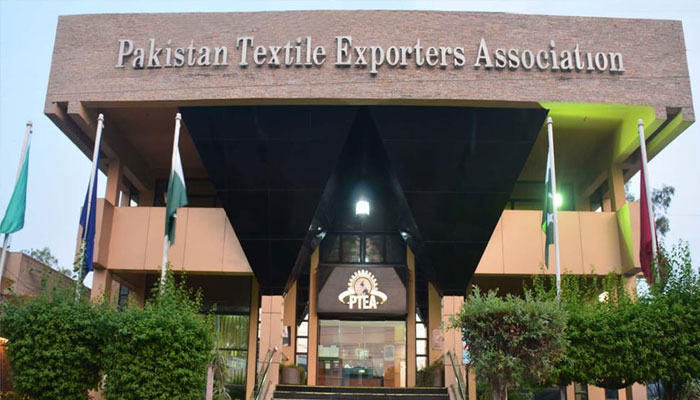PTEA head highlights pressing need of comprehensive energy strategy
Mukhtar emphasized that inefficiencies, particularly within six high-loss Distribution Companies (Discos)
FAISALABAD: The Patron-in-Chief of Pakistan Textile Exporters Association (PTEA), Khurram Mukhtar, has highlighted the pressing need for a 15-year comprehensive energy strategy to stabilize Pakistan’s energy sector amid volatile global conditions, says a press release on Sunday.
Mukhtar emphasized that inefficiencies, particularly within six high-loss Distribution Companies (Discos), and outdated infrastructure in the National Transmission and Dispatch Company (NTDC), are major contributors to the sector’s challenges. “A major overhaul in these entities is critical to addressing transmission issues, reducing losses and implementing the merit order effectively,” he stated.
Mukhtar advocated for transitioning Pakistan’s energy sector to a competitive marketplace, moving away from the restrictive frameworks that currently hinder competition. He noted that the government’s winter package, aimed at increasing industrial electricity consumption, could benefit 35-40% of industrial users.
However, most businesses still lack the necessary incremental consumption, limiting the package’s full potential. “It’s a promising start, but for real economic benefits, policy stability and continuity are crucial for the industrial sector to engage in effective long-term planning,” Mukhtar added.
He further criticized the frequent, short-term policy shifts, often made without the Planning Commission’s input. “Over the last 6-7 years, many key policies have been reactive, implemented without a clear understanding of their broader impact,” Mukhtar remarked, calling for consistent course corrections to avoid sudden, detrimental changes.
Mukhtar stressed that proactive, collaborative planning among all stakeholders is essential to mitigate potential energy shortages as current surpluses are projected to turn into deficits. He called for a thorough analysis of Pakistan’s energy demand and supply, with an urgent focus on energy conservation and green energy, especially solarization. “Achieving a balance between supply and demand while keeping tariffs affordable for all is key to sustainable energy,” he said. Pointing to recent policy missteps, he noted the abrupt halt of gas supply to highly efficient Combined Heat and Power (CHP) units operated by the private sector.
“This decision risks billions in private sector investments and damages the export supply chain’s sustainability, sending a discouraging signal internationally. There’s still time to revisit this decision for a more thoughtful, sustainable approach,” Mukhtar cautioned.
-
 Nancy Guthrie Abduction: Piers Morgan Reacts To 'massive Breakthrough' In Baffling Case
Nancy Guthrie Abduction: Piers Morgan Reacts To 'massive Breakthrough' In Baffling Case -
 Adam Mosseri Set To Testify In Court Over Social Media Addiction Claims
Adam Mosseri Set To Testify In Court Over Social Media Addiction Claims -
 Will Warner Bros Finalize Deal With Paramount Or Stays Loyal With Netflix's Offer?
Will Warner Bros Finalize Deal With Paramount Or Stays Loyal With Netflix's Offer? -
 Palace Spotlights Queen Camilla For Her Work With Vision-impaired Children A Day After Andrew Statement
Palace Spotlights Queen Camilla For Her Work With Vision-impaired Children A Day After Andrew Statement -
 Kim Kardashian Still 'very Angry' At Meghan Markle, Prince Harry
Kim Kardashian Still 'very Angry' At Meghan Markle, Prince Harry -
 Texas Father Guns Down Daughter After Heated Trump Argument
Texas Father Guns Down Daughter After Heated Trump Argument -
 Andrew, Sarah Ferguson Quietly Adopts New Strategy To Control Public Narrative
Andrew, Sarah Ferguson Quietly Adopts New Strategy To Control Public Narrative -
 Harry Styles Refuses To Apologise For High Tour Ticket Prices In Rude Response: Source
Harry Styles Refuses To Apologise For High Tour Ticket Prices In Rude Response: Source -
 Ariana Grande Opens Up About ‘dark’ PTSD Experience
Ariana Grande Opens Up About ‘dark’ PTSD Experience -
 Angelina Jolie Says It Loud: 'Scars Define My Life'
Angelina Jolie Says It Loud: 'Scars Define My Life' -
 Climate-driven Wildfires Scorch Some Of World’s Oldest Trees In Patagonia
Climate-driven Wildfires Scorch Some Of World’s Oldest Trees In Patagonia -
 King Charles’ Ignorance Over Andrew & Jeffrey Epstein Not True? Foreign Office, MI6’s Work Comes Out
King Charles’ Ignorance Over Andrew & Jeffrey Epstein Not True? Foreign Office, MI6’s Work Comes Out -
 Police Detained 'innocent' Man In Nancy Guthrie's Kidnapping
Police Detained 'innocent' Man In Nancy Guthrie's Kidnapping -
 Co-founders Of Elon Musk's XAI Resigned: Here's Why
Co-founders Of Elon Musk's XAI Resigned: Here's Why -
 Dakota Johnson Reveals Smoking Habits, The Leading Cause Of Lung Cancer
Dakota Johnson Reveals Smoking Habits, The Leading Cause Of Lung Cancer -
 FAA Shuts Down El Paso Airport, Flights Suspended For 10 Days: Here’s Why
FAA Shuts Down El Paso Airport, Flights Suspended For 10 Days: Here’s Why




